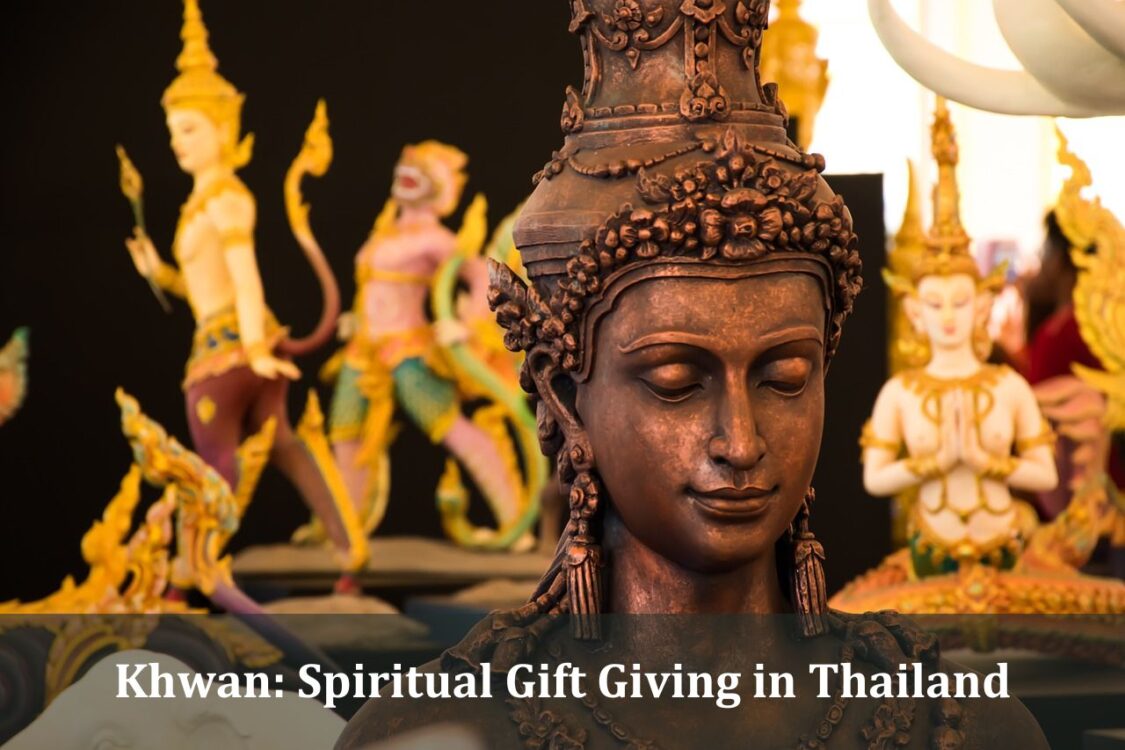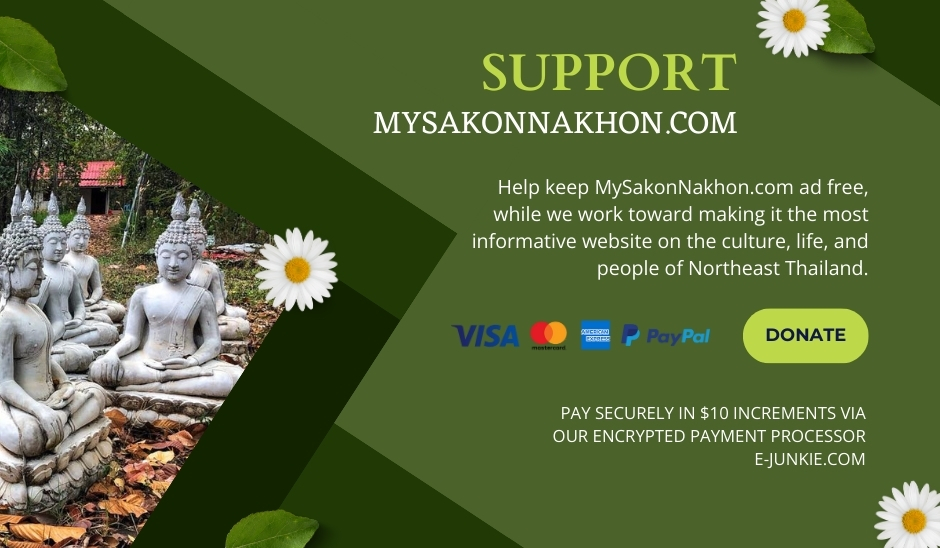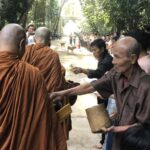
The Thai Belief in Khwan: Spiritual Gift Giving in Thailand

Those who have lived in Thailand likely know that the Thai word for gift is “khong-khwan” (ของขวัญ). But have you ever wondered about the origin of this word? Students of the Thai language are familiar with the word “khong” (ของ), which means “of” or “belonging to”. But what, or who, is “khwan” (ขวัญ)?
The meaning of the word “khwan” or “kwan” stretches back thousands of years, and relates to the ancient Southeast Asian belief in spirits, called “khwan,” who exist in every person from birth.
Traditional beliefs in “khwan” vary widely throughout Thailand, with some Isaan communities conducting elaborate ceremonies around their particular beliefs in “khwan”.
For example, the Bai Sri Su Khwan Ceremony (พิธีบายศรีสู่ขวัญ) honors “khwan” during important transitions in life, such as entrance into university, the monkhood, or marriage; or after the birth of a child. And the Kham Su Khwan Khao (คำสู่ขวัญข้าว) chant is delivered as a tribute to Phra Mae Phosop (พระแม่โพสพ), during the Thai Rice Goddess Ceremony.
One commonly shared “khwan” belief throughout Thailand is that the most important and sensitive “khwan,” is the one which resides in a spiral shape at the top of the head — sometimes referred to as “jawm-khwan” (จอมขวัญ)
The sacredness of this “khwan” atop the skull is one of the reasons why there is such a taboo against touching the top of the head someone in Thailand (including children), as this could scare away that person’s “khwan,” causing them to suffer a physical ailment, psychological distress, or even die.
The “khwan” is seen as a spirit associated with the physical, mental, and spiritual health of the individual. But unfortunately it also can easily be “spooked” by an unexpected event (especially when the person is young), which is why Thai children are sometimes warned against watching horror films with the word “khayao-khwan” (เขย่าขวัญ), which means “terrifying”.
When Thai babies or toddlers are under distress, parents are taught to whisper the phrase “Khwan oei, Khwan ma” (ขวัญเอ๋ยขวัญมา) to coax the “khwan” spirit to return to the child.

Thai Words with Khwan
Because of the importance placed on “khwan,” we find reference to it in a number of words that demonstrate love, admiration, and affection. For example,
Khwan Dtaa (ขวัญตา) means a beloved person, someone who is beautiful to behold.
Khwan Jai (ขวัญใจ) means the woman who is greatest in our heart, our darling.
Mia Khwan (เมียขวัญ) means our beloved wife.
Khoo Khwan (คู่ขวัญ) means soulmates.
As “khwan” pertains to gift giving in Thailand, gifts (Khong-Khwan) to deceased family members often are presented at temples as a type of Thai merit making — the gifts aimed at calming the spirit of the dead, as they prepare for their next rebirth into life.
All of this should add an extra, spiritual, dimension to your own gift giving in Thailand, as you are not only giving a gift to your Thai friend, partner, or colleague, but a gift to nurture the “khwan” spirit that resides within them, and which is responsible for their peace of mind, good health, and spiritual growth.
- The Royal Ploughing Ceremony in Thailand – A History - May 8, 2024
- Dying Well the Buddhist Way in Thailand - May 7, 2024
- Comforting Words for the Brokenhearted in Thailand - May 6, 2024




